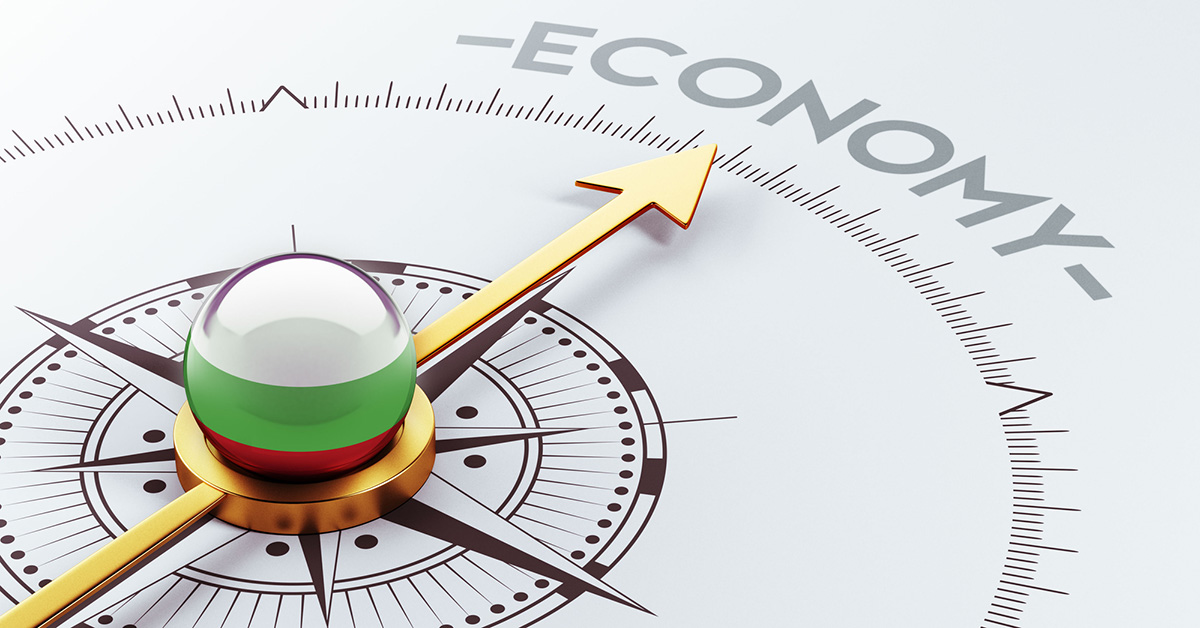Economy
2023 Economic Outlook For Nigeria

By Emmanuel Otori
In conjunction with the IMF/World Bank annual meetings, forecasts released at the July World Economic Outlook in 2022 projected Nigeria’s inflation to fall to 17% and an increase in its Gross Domestic Product GDP by 3.4% in 2022 and 3.2% in 2023. Reprojected in October’s World Economic Outlook, Nigeria’s GDP is projected to drop to 3.2% in 2023, with a difference of 0.2% in the July 2022 projection. The IMF estimates that by 2023, Nigeria’s inflation will have decreased to 17% from a projected 19%.
According to the African Development Bank Group (AFDB), growth will slow, averaging 3.2% from 2022 to 2023, because of the continued low oil production and rising insecurity. The conflict between Russia and Ukraine, rising food, gas, and diesel costs, and continuous supply disruptions are all anticipated to play a part in keeping inflation high in 2022 at 16.9% and above pre-pandemic levels in 2023.
While oil exports are anticipated to slightly increase and capital inflows to rebound, an expected positive oil price shock on exports may be substantially outweighed by a poor output effect caused by lower oil production, which is fueled by inadequate infrastructure and increased insecurity.
The anticipated 0.1% of GDP marginal current account surplus in 2022 could turn into a 0.2% deficit in 2023. With greater revenue collection, the budget deficit will typically drop to 4.5% of GDP. Furthermore, it is predicted that by 2024, the government debt is expected to reach 40% of GDP due to new borrowing.
From the IMF’s Research Department, Daniel Leigh, the Divisional Chief indicated that the recent increase in the Monetary Policy Rate (MPR) by the Central Bank of Nigeria (CBN), as well as the global fall in the price of crude oil and food, are the foundations for the reduced inflation rate forecasts for Nigeria. However, the IMF’s Pierre-Olivier Gourinchas, Director of Research, provided guidance to the CBN and its international counterparts on the selection of monetary policy instruments necessary to reduce inflation.
The IMF’s lower growth rate forecast for the global economy in 2023 was consistent with predictions for Nigeria’s GDP growth. Projections on the global economic growth for 2022 were retained at 3.2%, whereas they are projected to decrease to 2.7% in 2023. In a statement describing why it anticipates slower global growth, the International Monetary Fund (IMF) provided an explanation:
“The world economy continues to face steep challenges, shaped by the Russian invasion of Ukraine, a cost-of-living crisis caused by persistent and broadening inflation pressures, and the slowdown in China…”
Curbing Economic Crisis
According to Pierre-Olivier Gourinchas, fiscal policy should not conflict with the efforts of the monetary authorities because, otherwise, it will only prolong the existing inflation leading to a severe financial crisis. Fiscal policy should also focus on the most vulnerable groups for a short-term period. In addition, fiscal policy can aid economies in adjusting to more unpredictable situations by making investments in human capital, digitalization and green energy. Although with this in place, economies can withstand unexpected future crises, he expressed sadness that policies do not follow these concepts.
Emmanuel Otori has over 10 years of experience working with 100 start-ups and SMEs across Nigeria. He has worked on the Growth and Employment (GEM) Project of the World Bank, GiZ, and Consulted for businesses at the Abuja Enterprise Agency, Novustack, Splitspot and NITDA. He is the Chief Executive Officer at Abuja Data School.
Economy
NGX Market Cap Surpasses N110trn as FY 2025 Earnings Impress Investors

By Dipo Olowookere
Investors at the Nigerian Exchange (NGX) Limited have continued to show excitement for the full-year earnings of companies on the exchange so far.
On Friday, Customs Street further appreciated by 1.01 per cent as more organization released their financial statements for the 2025 fiscal year.
During the session, traders continued their selective trading strategy, with the energy sector going up by 2.47 per cent at the close of business despite profit-taking in the banking counter, which saw its index down by 0.11 per cent.
Yesterday, the insurance space grew by 2.16 per cent, the industrial goods segment expanded by 1.70 per cent, and the consumer goods industry jumped by 0.42 per cent.
Consequently, the All-Share Index (ASI) increased by 1,722.13 points to 171,727.49 points from 170,005.36 points, and the market capitalisation soared by N1.106 trillion to N110.235 trillion from the N109.129 trillion it ended on Thursday.
Business Post reports that there were 59 appreciating stocks and 19 depreciating stocks on Friday, representing a positive market breadth index and strong investor sentiment.
The trio of Omatek, Deap Capital, and NAHCO gained 10.00 per cent each to sell for N2.64, N6.82, and N136.40 apiece, as Zichis and Austin Laz appreciated by 9.98 per cent each to close at N6.72 and N5.40, respectively.
Conversely, The Initiates depreciated by 9.74 per cent to N19.45, DAAR Communications slumped by 7.32 per cent to N1.90, United Capital crashed by 6.55 per cent to N18.55, Coronation Insurance lost 5.71 per cent to quote at N3.30, and First Holdco shrank by 5.53 per cent to N47.00.
The activity chart showed an improvement in the activity level, with the trading volume, value, and number of deals up by 33.77 per cent, 93.27 per cent, and 10.63 per cent, respectively.
This was because traders transacted 953.8 million shares worth N43.1 billion in 51,005 deals compared with the 713.0 million shares valued at N22.3 billion traded in 46,104 deals a day earlier.
Fidelity Bank was the most active with 92.4 million units sold for N1.8 billion, Chams transacted 69.2 million units valued at N310.9 million, Deap Capital exchanged 59.1 million units worth N382.7 million, Access Holdings traded 57.2 million units valued at N1.3 billion, and Tantalizers transacted 48.6 million units worth N228.2 million.
Economy
Naira Retreats to N1,366.19/$1 After 13 Kobo Loss at Official Market

By Adedapo Adesanya
The value of the Naira contracted against the United States Dollar on Friday by 13 Kobo or 0.01 per cent to N1,366.19/$1 in the Nigerian Autonomous Foreign Exchange Market (NAFEX) from the previous day’s value of N1,366.06/$1.
According to data from the Central Bank of Nigeria (CBN), the Nigerian currency also depreciated against the Pound Sterling in the same market window yesterday by N2.37 to N1,857.75/£1 from the N1,855.38/£1 it was traded on Thursday, and further depleted against the Euro by 57 Kobo to close at N1,612.52/€1 versus the preceding session’s N1,611.95/€1.
In the same vein, the exchange rate for international transactions on the GTBank Naira card showed that the Naira lost N8 on the greenback yesterday to N1,383/$1 from the previous day’s N1,375/$1 and at the black market, the Nigerian currency maintained stability against the Dollar at N1,450/$1.
FX analysts anticipate this trend to persist, primarily influenced by increasing external reserves, renewed inflows of foreign portfolio investments, and a reduction in speculative demand.
In the short term, stability in the FX market is expected to continue, supported by policy interventions and improving market confidence.
Nigeria’s foreign reserves experienced an upward trajectory, increasing by $632.38 million within the week to $46.91 billion from $46.27 billion in the previous week.
The Dollar appreciation this week appears to be largely technical, serving as a correction to the substantial losses experienced from mid- to late January.
Meanwhile, the cryptocurrency market slightly appreciated, with Bitcoin (BTC) climbing near $68,000, up nearly 5 per cent since hitting $60,000 late on Thursday after investor confidence in crypto’s utility as a store of value, inflation hedge, and digital currency faltered.
The sell-off extended beyond crypto, with silver plunging 15 per cent and gold sliding more than 2 per cent. US stocks also fell.
The latest recoup saw the price of BTC up by 4.7 per cent to $67,978.96, as Ethereum (ETH) appreciated by 6.3 per cent to $2,021.10, and Ripple (XRP) surged by 9.5 per cent to $1.42.
In addition, Solana (SOL) grew by 7.3 per cent to $85.22, Cardano (ADA) added 6.1 per cent to trade at $0.2683, Dogecoin (DOGE) expanded by 5.4 per cent to $0.0958, Litecoin (LTC) rose by 5.2 per cent to $53.50, and Binance Coin (BNB) jumped by 2.3 per cent to $637.79, while the US Dollar Tether (USDT) and the US Dollar Coin (USDC) traded flat at $1.00 each.
Economy
Oil Prices Climb on Worries of Possible Iran-US Conflict

By Adedapo Adesanya
Oil prices settled higher on Friday as traders worried that this week’s talks between the US and Iran had failed to reduce the risk of a military conflict between the two countries.
Brent crude futures traded at $68.05 a barrel after going up by 50 cents or 0.74 per cent, and the US West Texas Intermediate (WTI) crude futures finished at $63.55 a barrel due to the addition of 26 cents or 0.41 per cent.
Iran and the US held negotiations in Muscat, the capital of Oman, on Friday to overcome sharp differences over Iran’s nuclear programme.
It was reported that the talks had ended with Iran’s foreign minister saying negotiators will return to their capitals for consultations and the talks will continue.
Regardless, the meeting kept investors anxious about geopolitical risk, as Iran wanted to stick to nuclear issues while the US wanted to discuss Iran’s ballistic missiles and support for armed groups in the region.
Any escalation of tension between the two nations could disrupt oil flows, since about a fifth of the world’s total consumption passes through the Strait of Hormuz between Oman and Iran.
Saudi Arabia, the United Arab Emirates, Kuwait and Iraq export most of their crude via the strait, as does Iran, which is a member of the Organisation of the Petroleum Exporting Countries (OPEC).
According to Reuters, Iran objected to the presence of any US Central Command (CENTCOM) or other regional military officials, saying that would jeopardise the process.
The current confrontation was sparked by more than two weeks of unrest in Iran that saw authorities launch a deadly crackdown that killed thousands of civilians and shocked the world. As reports of the deaths trickled out of Iran, US President Donald Trump threatened to strike Iran if any of the tens of thousands of protesters arrested were executed.
Meanwhile, Kazakhstan’s planned oil exports could fall by as much as 35 per cent this month via its main route through Russia, as the country’s top oil company, Tengiz oilfield, slowly recovers from fires at power facilities in January.
ING analysts have pointed out Iran’s neighbour, Iraq, and a disagreement with the US as another bullish factor for oil prices. It seems Iraqi politicians favour Mr Nouri al-Maliki as the country’s next Prime Minister, but the US thinks Mr al-Maliki is too close to Iran. President Trump has already threatened the oil producer with consequences if he emerges as PM.
-

 Feature/OPED6 years ago
Feature/OPED6 years agoDavos was Different this year
-
Travel/Tourism9 years ago
Lagos Seals Western Lodge Hotel In Ikorodu
-

 Showbiz3 years ago
Showbiz3 years agoEstranged Lover Releases Videos of Empress Njamah Bathing
-

 Banking8 years ago
Banking8 years agoSort Codes of GTBank Branches in Nigeria
-

 Economy3 years ago
Economy3 years agoSubsidy Removal: CNG at N130 Per Litre Cheaper Than Petrol—IPMAN
-

 Banking3 years ago
Banking3 years agoSort Codes of UBA Branches in Nigeria
-

 Banking3 years ago
Banking3 years agoFirst Bank Announces Planned Downtime
-

 Sports3 years ago
Sports3 years agoHighest Paid Nigerian Footballer – How Much Do Nigerian Footballers Earn





















